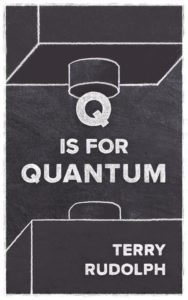
Over the last decade, a couple of occasions induced me to sink into this eternally self-questioning mode because I did not invest my youth in those fields. One was during an academic conference in Germany some years ago. The keynote speaker, a prominent neurosurgeon, presented how neurosurgery had improved the cognitive functions of Alzheimer’s patients. My presentation was after his keynote. In my typically brutal honesty, I confessed right away in front of many audience that I deeply regretted that I was not trained to be a neurosurgeon to help people in that miraculous and direct way; in contrast, being a computer scientist researching biomarkers to help with the early diagnosis and treatment for Alzheimer’s, my contribution to mankind seemed so miniscule. My wonderful PhD advisor Daniel Rueckert was among the audience. He took it very well. Reading Terry’s book and other related materials, meeting a few extraordinarily talented physicists including Terry recently, have opened up a whole new world for me. I want to learn more about quantum physics and quantum computing.
I read the book before I met Terry. I could not imagine who on earth would be able to write about Quantum Mechanics and Quantum Computing in such a readable form. The writer must be a genius to accomplish this. I read from front to back once first, then revisited many passages that were tagged in the first pass, added new tags iteratively. In my view, you can read the book with varying depths of thought. A 10 year old could understand probably all of the experiments and the discussions in the first two chapters. At the same time, Terry’s writing also intrigued me to ask a lot of “why”, “how”, “what-if” and”what-about” questions (for that reason I have so many tags in the book now). From there, there is no limit to how deep and how far you can explore. The History, Context and Further Reading chapter provides further guidance, most importantly with Terry’s honest and direct opinions.
The book has three major parts: Q-Computing, Q-Entanglement and Q-Reality. The way to read this book is to take it slowly and think. If you come across a passage that after some mental wrestling is still not crystally clear to you, give yourself permission to carry on reading and go back to revisit it. To me (with an advanced degree in a science & engineering field), unfortunately thanks to a lot pre-programming, at the beginning of my first read, I was not very comfortable with the games (with characters) initially but read it with much joy nevertheless. A few pages onwards, I was amazed by Terry’s superb storytelling skills in describing the very frontier of quantum computing with such simplicity, clarity and humor. The Q-Reality chapter provoked no less discomfort than The Theory of Everything by Stephen Hawking. Terry was very kind to assure me that I am not alone and even quantum physicists are struggling with whether, for example, to view the misty state as a real physics property or a state of knowledge. There is no point in reading a book and feeling 100% comfortable with it. Where is the stimulation? Through discomfort, my thinking expands.
We know what we know and what we do not know, or at least we hope we do. Q Is for Quantum opened up a new terrain with beautiful experiments and theories that I did not know that I did not know before and helped me to gain some understanding of that previously unknown world. Many questions remain for me. This is why I read. This is why you should read this book too.
I am very grateful to Terry for the enlightening conversation. Professors like Terry Rudolph, Daniel Ruckert and Paul Kelly make me really proud to be an Imperial graduate and to encourage prospective students to study in Imperial College London. Not only for their own brilliance as highly accomplished scientists, but for their humility, generosity, patience, encouragement and inspiration. We learn far more than just knowledge from these giants. Terry gave an amazing inaugural lecture in 2014, available below on YouTube.